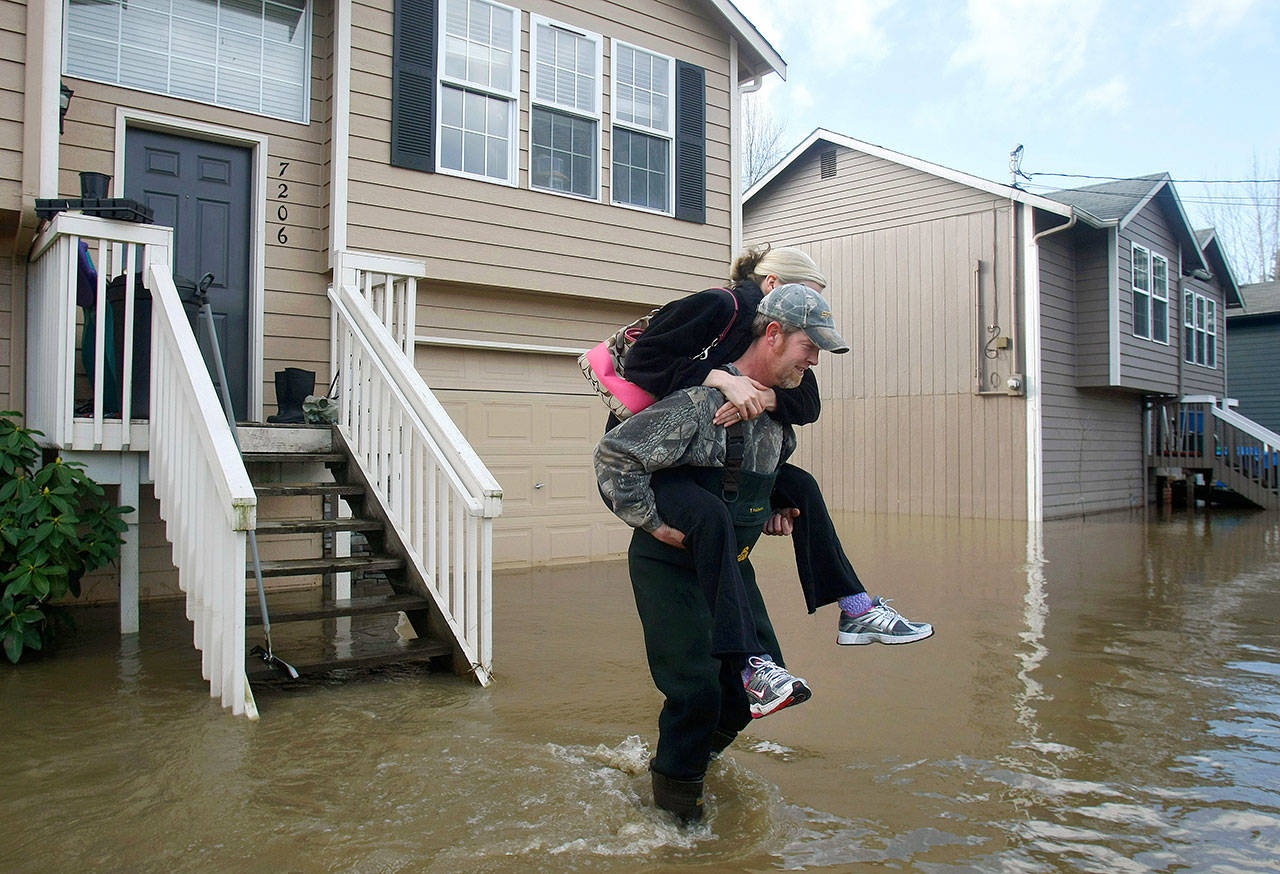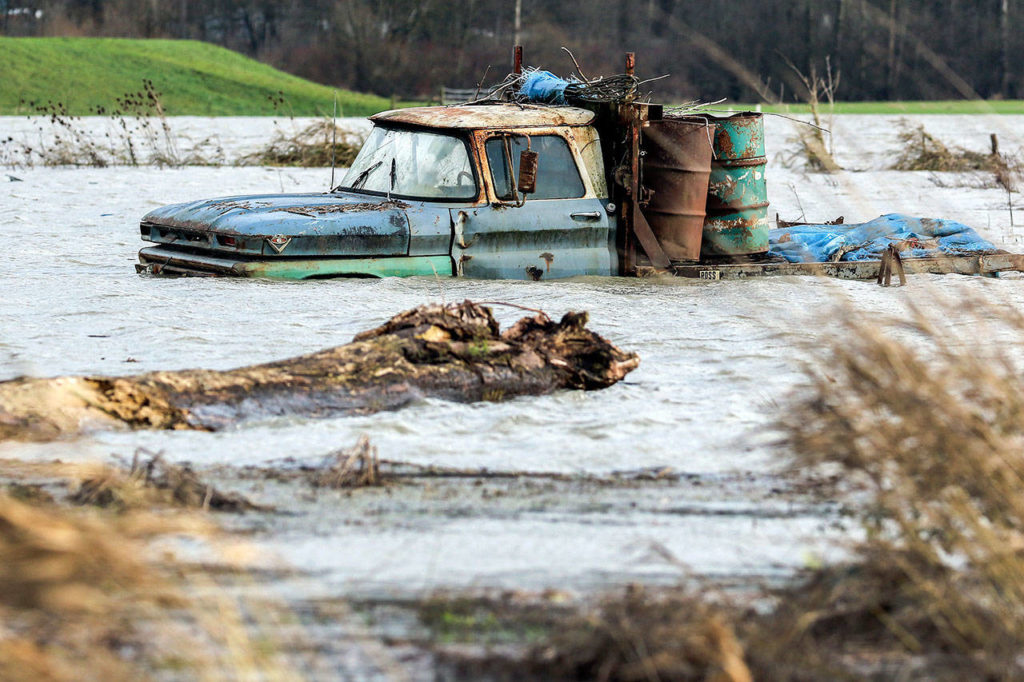People struggling with the devastation of hurricanes Irma, Harvey and Maria and the earthquake in Mexico provide a lesson for Snohomish County homeowners — and renters.
With storm season pending, experts say now is a good time to revisit insurance policies. Many people assume they have coverage against damage caused by perils such as floods, earthquakes, landslides, volcanoes and forest fires, only to discover they were mistaken after it’s too late.
“We’re seeing bigger, stronger storms. We all know eventually we’ll be subject to an earthquake,” said Kara Klotz, spokeswoman for the Washington State Office of the Insurance Commissioner. “It’s scary and daunting, and we don’t like to think about it. The biggest thing is to read your policy. Know what you’re covered for, and what you’re not.”
Most homeowner policies, for instance, cover water damage generated from inside the home (a broken dishwasher or leaky refrigerator) but not from outside (flash flooding or a broken sewer line). That coverage costs extra.
So does protection against earth movement: landslides/mudslides, sinkholes, collapsed hillsides, and possibly volcanic activity. These require a separate policy from specialty insurers.
Even if you think you’re covered for a particular peril, it’s wise to double check.
Roy White, director of the National Flood Insurance Program, told the Associated Press in September that only half of the 10 million U.S. properties that need flood insurance have it — despite a mandate for flood-plain homeowners receiving federally-backed loans to buy insurance through the program.
Though included in the initial mortgage agreement, policies can slip without the lender noticing. When loans are sold or repackaged, paperwork sometimes gets lost, and new lenders do not follow up.
In Florida, 59 percent of flood insurance premiums were not being paid, leaving just 41 percent of the state’s flood-plain residents covered for damages from Hurricane Irma, according to data from the Federal Emergency Management Act (FEMA).
In Snohomish County, there has been a 10.4 percent decrease in flood insurance policies after a rate hike in 2012 rose the average premium from $798 a year to $1,073, according to an AP report.
Klotz estimates less than 10 percent of Washingtonians have earthquake insurance. Some companies do not offer earthquake insurance, and those that do include deductibles up to 30 percent. This would leave the owner of a $700,000 home responsible for $210,000 in replacement costs.
“Earthquake coverage is really a personal choice,” said Kenton Brine, president of the Northwest Insurance Council. “The more you have invested in your home and the more budget you have available, the likelier it is that you’ll want earthquake coverage. If your home is your major investment, coverage probably makes sense. (It) could save you from bankruptcy.”
Many tenants mistakenly believe their landlord’s insurance will cover their losses in a catastrophe. But the landlord’s policy covers damage to the building, not to occupants’ personal belongings.
Those considering quake insurance should ask about total replacement coverage. This keeps pace with rising labor and material costs, ensuring you have enough money to rebuild your house, said Brine.
Brad Hilliard, a spokesman for State Farm Insurance, advises people to keep an up-to-date inventory of everything they own. The easiest way is to snap photos and store them in the cloud.
“Pay close attention to closets, garages, barns and sheds,” Hilliard said. “There’s a lot to remember, at a very stressful time.”
Since each homeowner has unique needs, Hilliard recommends consulting with your insurance agent at least once a year. Ask plenty of “what if” questions (what if a tree makes a hole in my roof and rain gets in the walls…am I covered?)
Coverage for most common perils, such as wildfires and falling trees, is included in standard policies. But it pays to be vigilant.
There are more than 600 companies issuing personal insurance policies in Washington state, Brine noted. Some policies will be too restrictive, and some agents might be unwilling to write the policy you request.
“But most of them have what you need,” he said, “and they want to sell it to you. When weather comes to the Puget Sound region, it often hits Snohomish County harder than other areas, so make sure you are not under-insured.”
Talk to us
> Give us your news tips.
> Send us a letter to the editor.
> More Herald contact information.


























